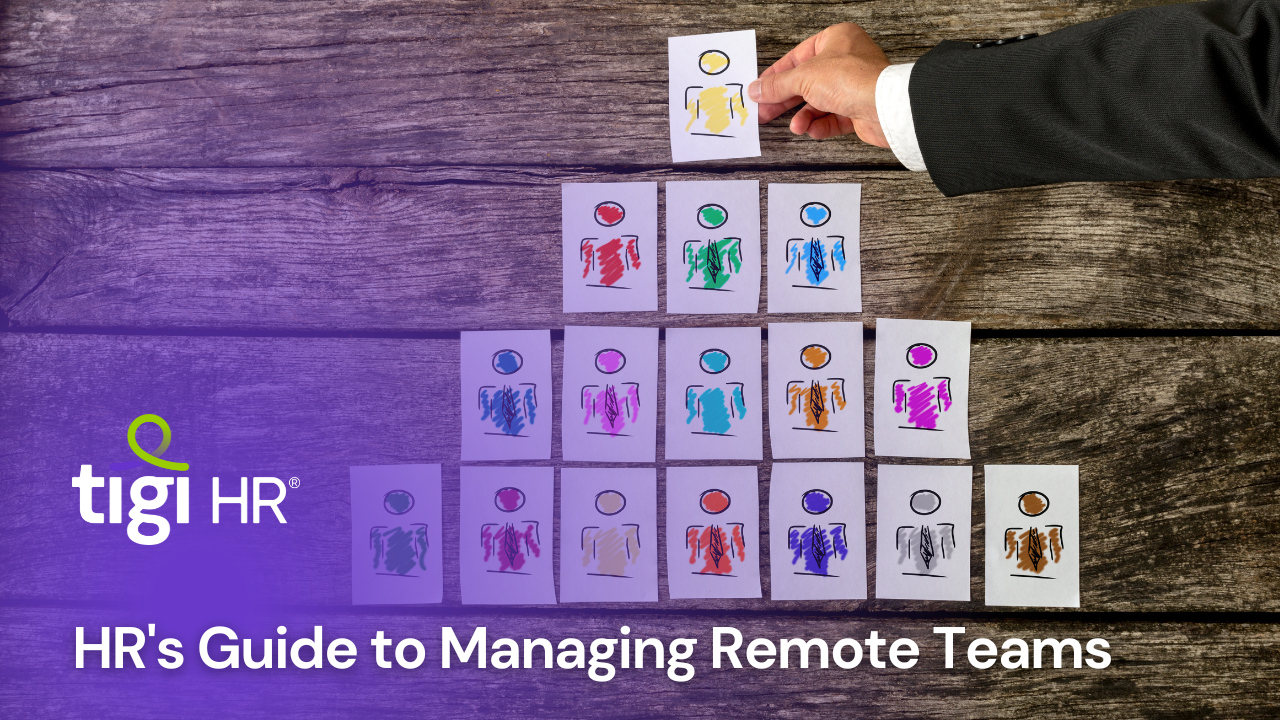The metamorphosis of the workplace into a dynamic ecosystem of remote teams necessitates a paradigm shift in the way Human Resources (HR) professionals approach their roles. In this guide, we explore a strategic roadmap for HR to not just manage but optimize the potential of remote teams.
1. Cultivate a Culture of Trust:
Trust is the cornerstone of successful remote team management. HR should foster a culture where trust is embedded in every interaction. Provide autonomy to team members, promoting a sense of responsibility that fuels productivity and creativity.
2. Emphasize Results-Oriented Leadership:
Remote teams thrive when guided by results-oriented leadership. HR should encourage managers to focus on outcomes, empowering employees to take ownership of their work. This shift from task-focused to results-driven leadership fosters a culture of accountability and achievement.
3. Harness the Power of Virtual Collaboration:
Virtual collaboration tools are the lifeline of remote teams. HR professionals should champion the adoption of collaborative platforms, ensuring teams have seamless access to shared documents, real-time communication channels, and project management tools that enhance collaboration and efficiency.
4. Personalize Remote Employee Experiences:
Recognize that each remote employee is unique. HR should tailor experiences to individual needs, considering factors such as preferred working hours, communication styles, and career aspirations. Personalization enhances job satisfaction and fosters a sense of belonging in a virtual environment.
5. Pioneer Continuous Feedback Loops:
Traditional annual reviews are outdated in the realm of remote work. HR should facilitate continuous feedback loops, creating an ongoing dialogue between managers and team members. Timely and constructive feedback enhances performance, allowing for rapid adjustments and improvements.
6. Bolster Cybersecurity Measures:
As remote work expands, so do cybersecurity risks. HR should collaborate with IT departments to implement robust cybersecurity measures, ensuring the protection of sensitive data and maintaining a secure virtual work environment.
7. Instill a Growth Mindset:
Cultivate a growth mindset within remote teams. HR should promote a culture that embraces challenges as opportunities for learning and development. Encourage employees to acquire new skills, take on stretch assignments, and view obstacles as stepping stones to professional growth.
8. Facilitate Virtual Socialization:
Remote work should not equate to isolation. HR professionals play a crucial role in facilitating virtual socialization activities. From virtual coffee breaks to online team-building events, fostering a sense of community is vital for remote team morale.
9. Craft Agile Policies for a Remote Workforce:
HR policies must evolve to accommodate the unique needs of remote teams. Craft agile policies that address remote work nuances, including flexible schedules, digital communication etiquette, and support mechanisms for employees navigating the challenges of remote collaboration.
10. Lead by Example:
HR professionals are the torchbearers of organizational culture. Lead by example in embracing the dynamics of remote work. Demonstrate adaptability, open communication, and a commitment to continuous improvement, inspiring confidence in the workforce.
In navigating the uncharted territories of remote team management, HR professionals have the opportunity to shape a future where flexibility, innovation, and employee well-being coalesce. By strategically navigating these aspects, HR can not only manage but unlock the full potential of remote teams, propelling organizations into a new era of sustainable success.
The Benefits of Employee Training and Development Programs
Unlocking potential and driving success, employee training programs redefine workplace dynamics. From personalized learning paths to global collaboration, these initiatives cultivate adaptable skills and create a culture of continuous improvement. Harnessing data analytics ensures measurable impact, while self-directed learning empowers employees. Embrace the transformative power of training for agile, engaged, and globally competitive teams.
Find trusted recruitment agencies : Click here





